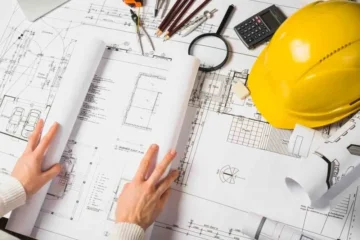Introduction
Dreaming of a home back in India? You’re not alone. Presently, thousands of Non-Resident Indians (NRIs) are now choosing to build homes in their homeland — for emotional reasons, investment opportunities, or future retirement. But let’s be real: constructing a home while sitting miles away can feel overwhelming. From legalities to logistics, there’s a lot to juggle.
That’s why this comprehensive, step-by-step guide is here to help you navigate each phase confidently, from buying land to turning the key in your brand-new home — all while living abroad.
1: Understand Legal Rights and Property Ownership
Let’s start with the legal stuff — because if you don’t get this right, nothing else matters.
Can NRIs Legally Own Property in India?
Yes, you absolutely can. As an NRI (including OCI or PIO holders), the Reserve Bank of India (RBI) allows you to buy residential and commercial properties in India. However, there are restrictions:
- You cannot buy agricultural land, plantation property, or farmhouses.
- Inherited agricultural land is allowed, but purchase is not.
Types of Properties NRIs Can Purchase
You’re legally allowed to construct or invest in:
- Residential plots
- Commercial buildings
- Apartments and villas
Furthermore, verify title deeds, ownership history, and ensure the property is non-disputed before buying. Consequently, engage a local legal advisor to conduct due diligence.
2: Choose the Right Location
Location isn’t just about views; it impacts appreciation, rental income, and your long-term plans.
Factors to Consider
- Connectivity: Access to highways, airports, hospitals
- Job Hubs: Bengaluru, Hyderabad, Pune for IT pros
- Hometown Sentiment: Many NRIs prefer building near family
- Climate and Environment: Consider future livability
Tier-1 vs Tier-2 Cities
- Tier-1 (Delhi, Mumbai, Chennai): Expensive, high ROI, fast-paced lifestyle
- Tier-2 (Coimbatore, Vadodara, Mysore): Affordable, peaceful, growing demand
Therefore, choose wisely based on your goals — whether it’s retirement, rental income, or vacation home.
3: Set a Realistic Budget
Be ready — construction costs in India vary by city, design, and materials.
What’s in Your Budget?
Include:
- Land cost
- Architectural and legal fees
- Construction material and labor
- Water, electricity, and municipal approvals
- GST and TDS on payments
- Furnishing and interiors
Watch the Forex Game
- Fluctuating exchange rates can mess with your planning.
- Use NRE/NRO accounts to manage remittance and avoid high conversion fees.
However, a detailed Excel sheet with contingencies (10–15%) is your best friend here.
4: Hire a Reputed Local Architect and Contractor
Think of them as your eyes and ears on the ground.
How to Find Trustworthy Professionals
- Referrals from family or friends
- Verified reviews online (Google, Justdial, Houzz India)
- Certainly check if they’ve worked with NRI’s before
Must-Have: A Solid Contract
Ensure your agreement includes:
- Scope of work
- Payment schedule
- Project timeline
- Material specs
- Penalty clauses for delays
And also, Never pay 100% upfront. Break payments into logical milestones.
5: Get the Necessary Approvals and Permits
Without proper paperwork, your dream home can become a legal nightmare.
Permits Required
- Building Plan Approval from local municipality
- Environmental clearance (for larger plots)
- Water and sewage connection approval
- Commencement Certificate
Handling It Remotely
For example, use a Power of Attorney to authorize a trusted person in India. Besides, your contractor or legal advisor can also guide the permit process.
6: Open an NRI Bank Account for Transactions
Don’t funnel funds from random accounts — it causes tax confusion and transfer issues.
Choose Between NRE and NRO
- NRE: For income earned abroad, tax-free in India
- NRO: For income generated in India (rent, dividends)
Moreover, use RBI-authorized channels for transferring money. Always keep records for every transaction.
Tax Matters
Funds routed incorrectly may trigger TDS deductions, unnecessary paperwork, or even scrutiny from income tax authorities.
7: Register a Power of Attorney (Poa)
You can’t be everywhere — but your Poa can act on your behalf legally.
Why It’s Important
Your Poa can:
- Sign agreements
- Submit documents
- Manage construction and vendors
- Apply for permits
How to Register
- Get it drafted by a lawyer
- Notarize it in your country
- Send to India for adjudication and registration
8: Monitor Construction Progress Remotely
Building your dream home from thousands of miles away? Although, it sounds tricky, but with today’s tech, it’s totally doable.
Tools and Apps to Keep You in the Loop
- WhatsApp/Telegram groups with your contractor for instant updates.
- Google Drive/Dropbox to share photos, videos, and documents.
- Video calls for virtual site visits.
- Apps like Trello or Asana to track project milestones.
- Hiring a local project manager or a trusted family member to oversee daily work.
Besides, staying connected frequently ensures issues are caught early, saving you time and money.
9: Ensure Compliance with RERA and Local Laws
The Real Estate (Regulation and Development) Act (RERA) protects homebuyers and brings transparency.
Why RERA Matters to NRIs
- Guarantees timely completion.
- Ensures quality standards.
- Makes builder/project details public.
Hence, prior to signing contracts or paying advances, check if your project is RERA-registered.
State-Specific Norms
Every state has its own construction rules—floor-area ratios, setbacks, environmental clearances. Moreover, your architect or legal expert should ensure full compliance to avoid future penalties or demolition risks.
10: Plan for Interiors and Furnishings
Don’t forget the fun part—making your house a home!
Customizing From Afar
- Send your design ideas and mood boards via apps.
- Hire an interior designer who works remotely or locally.
- Choose materials that are easy to source in India.
Import vs Local Purchases
Particularly, NRIs prefer importing select items (smart home gadgets, designer furniture) but it can be costly and time-consuming due to customs. For example, many Indian manufacturers offer quality and affordability—so weigh your options.
11: Consider Renting or Using the Home
Your house can generate income or be your personal getaway.
Rental Strategies for NRIs
- Use property management companies to find tenants and handle maintenance.
- Choose furnished homes for higher rental returns.
- Ensure legal rental agreements are in place.
Personal Use
Furthermore, plan for visits around Indian festivals or summers, and prepare your home with utilities active and maintenance done ahead of time.
12: File Taxes and Maintain Compliance
Owning property means responsibilities — don’t overlook tax filings.
NRI Taxation Basics
- ental income is taxable in India; TDS (30%) applies but can be reduced with tax treaties.
- Capital gains tax applies when selling the property.
- For instance, deduct property tax, maintenance, and loan interest where applicable.
Maintenance From Abroad
Regular payments for utilities, security, and upkeep are essential. Therefore, consider online payments and appoint a local caretaker if needed.
13: Plan for Future Visits or Retirement
Think long term—your home might be your retirement haven or family legacy.
Making Your Home Retirement-Friendly
- Install ramps, non-slip flooring, and wider doorways.
- Opt for energy-efficient lighting and solar panels.
- Incorporate smart home automation for security and convenience.
Adding Value Over Time
Indeed, landscaping, modular kitchens, and home automation boost resale value and livability.
Conclusion
In conclusion, constructing a home in India as an NRI can be a rewarding journey if you plan well and stay involved. From understanding legal frameworks to choosing the right team and monitoring progress, each step is critical. For instance, technology and trusted contacts can bridge the distance, turning your dream home into reality without constant travel. Finally, remember to keep your budget realistic, stay compliant with laws, and think long term about how your home will serve you and your family.
With patience and the right approach, your Indian home will become a cherished sanctuary and a valuable asset for years to come.
Start Your Global Journey with AfterViza
Your future abroad deserves a trusted partner—and AfterViza is here to make it seamless. From university admissions and job marketing to legal, visa, and lifestyle concierge services, we simplify every step of relocation. With a proven global network and expert guidance, we turn uncertainty into opportunity and ambition into achievement. Take the leap with AfterViza today—because success abroad begins with the right support.



0 Comments